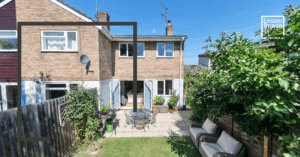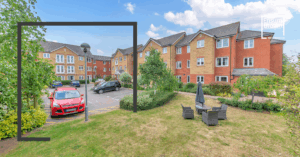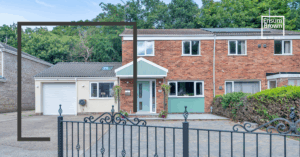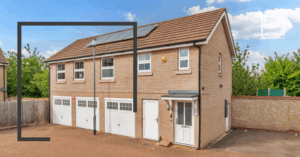When it comes to buying a home, one of the biggest decisions you’ll face is whether to choose a new build or an older property. Each option has its own benefits and drawbacks, and the right choice will depend on your lifestyle, budget, and long-term plans. To help you make an informed decision, we’ve outlined some of the key differences.
Benefits of Buying a New Build
Opting for a new build property comes with several appealing advantages, particularly if you’re looking for low maintenance and modern living:
- Personalisation options: Many new build homes offer the opportunity to customise elements such as the kitchen, bathroom, flooring, and décor before you move in.
- Energy efficiency: Most new build properties meet or exceed modern energy standards, often resulting in lower utility bills and a more environmentally friendly home.
- Modern design: Contemporary layouts are designed with today’s lifestyles in mind, including open-plan kitchen-diners, en-suite bathrooms, and dedicated work-from-home spaces.
- Builder warranties: New build homes typically come with a 10-year warranty, giving buyers peace of mind against structural defects.
- Low maintenance: As everything is brand new, from plumbing to appliances, you’re unlikely to face repair costs for several years.
Benefits of Buying an Older Property
While a new build offers convenience and modern features, older homes have their own unique appeal, often rich in character and history:
- Established locations: Older properties are often found in well-regarded areas close to local amenities, schools, and transport links.
- Architectural features: Period properties may include high ceilings, sash windows, decorative plasterwork, fireplaces, and original wood or tiled floors.
- Mature gardens: Unlike many new developments, older homes often come with larger, well-established gardens that provide privacy and charm.
- Immediate availability: With older homes, you can view the property as it stands – no waiting for construction or imagining how a plot might look on completion.
- Potential to add value: Renovations, extensions, or interior upgrades can increase the value of an older home, making it a good investment opportunity.
- Better value for money: Older homes may not carry the same price premium that some new build properties do, especially in competitive markets.
Which is Right for You?
Whether you choose a new build or an older home depends on your preferences and practical considerations. If you want a home that’s move-in ready with minimal upkeep, a new build might be ideal. On the other hand, if you’re after character, space, or the chance to renovate and add value, an older home could be the better fit.
If you’re considering moving, whether to a new build or a traditional property, our team would be delighted to help. We can assist with marketing and selling your current home while guiding you through the next step of your property journey.
Know someone weighing up this decision? Feel free to share this article with them – it might help make things a little clearer.
Important Links
Book a Valuation
Visit our Royston Facebook Page
Visit our Newmarket Facebook Page
View our Ware Facebook Page





